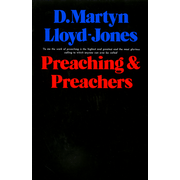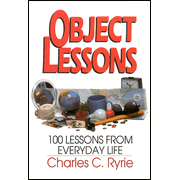Man is very concerned about self-preservation. It is not only very natural to want to live, but to live in such a way as to be comfortable. No matter what kind of civilization or society, people want to have a kind of “safety net” that would serve to alleviate their stress about the sustenance of life. Idolatry and materialism often feed off of this innate desire of man. This sermon outline addresses this issue by examining a portion of, the longest recorded sermon by Jesus Christ, the Sermon on the Mount.
Title: “Where Is Your Safety Net?”
Text: Matthew 6:25-34
(Matthew 6:25-34) “Therefore I say unto you, Take no thought for your life, what ye shall eat, or what ye shall drink; nor yet for your body, what ye shall put on. Is not the life more than meat, and the body than raiment? Behold the fowls of the air: for they sow not, neither do they reap, nor gather into barns; yet your heavenly Father feedeth them. Are ye not much better than they? Which of you by taking thought can add one cubit unto his stature? And why take ye thought for raiment? Consider the lilies of the field, how they grow; they toil not, neither do they spin: And yet I say unto you, That even Solomon in all his glory was not arrayed like one of these. Wherefore, if God so clothe the grass of the field, which to day is, and to morrow is cast into the oven, shall he not much more clothe you, O ye of little faith? Therefore take no thought, saying, What shall we eat? or, What shall we drink? or, Wherewithal shall we be clothed? (For after all these things do the Gentiles seek:) for your heavenly Father knoweth that ye have need of all these things. But seek ye first the kingdom of God, and his righteousness; and all these things shall be added unto you. Take therefore no thought for the morrow: for the morrow shall take thought for the things of itself. Sufficient unto the day is the evil thereof.” (KJV)
Introduction:
• Much of our lives is spent weaving a safety net of some sort.
• To be sure, before, we that know that Lord, were saved, our lives were spent accumulating this and that for our existence.
• Human nature teaches us to take care of ourselves. This is the law of self-preservation.
• When the human has been regenerated by God’s Holy Spirit, they realize that God has a bountiful hand that will supply the needs of His children.
• In His sermon, Jesus is not advocating that we sit and do nothing, but wait on God. This would be a foolish and contradictory statement. The Bible teaches that if a man does not work, then he ought not eat.
• The point Jesus is making is that our one concern in life ought not be self-preservation, but rather, self death and depending upon an Omnipotent Hand for our needs.
• I wonder, if the truth be known, how many of us here this morning have a safety net that consists in material things rather than in the mighty hand of God.
• Before you answer this question stop and think a minute. If your earthly possessions are in trouble, or your bank account begins to wither, how would it affect you?
• I know that we all would be nervous, but if your safety net is in Christ then you will not be as concerned as one who is gathering into their own barns.
Proposition: Jesus addresses five laws in these verses that every child of God should employ into active service in their Christian lives.
I. Notice The Law Of The Birds!
(Matthew 6:26) “Behold the fowls of the air: for they sow not, neither do they reap, nor gather into barns; yet your heavenly Father feedeth them. Are ye not much better than they?” (KJV)
A. Birds are not lazy, but persistent and are always on the lookout for food.
B. God provides them with bountiful feasts each and every time God feels they need one!
C. God knows they need strength for their flight, and He also knows the strength and nourishment we need!
D. Birds trust in the Divine care of God to exist like all other animals.
E. Birds are flying and still soaring all around the world, and we can soar in our lives as Christians, through, and over the storms of this life.
F. Your safety net should be in God’s Provision!
II. Notice The Law Of Impossibility!
(Matthew 6:27) “Which of you by taking thought can add one cubit unto his stature?” (KJV)
A. Jesus asks a rhetorical question, that is, a question with an assumed answer.
B. We know good and well we can have a sizeable impact on our waistline, but not our height!
C. Not one of us can add any height to our bodies naturally!
D. It is an utter impossibility; therefore we must learn that our lives are introduced, from time to time, with impossibilities! That is, things completely out of our control!
E. God knows your needs much better than you do. He fitted you to the circumstance that you are in and he did not leave you lacking anything that He could not provide for you when you need it.
F. You safety net should be built around God’s infinite wisdom!
III. Notice The Law Of Lilies!
(Matthew 6:28-29) “And why take ye thought for raiment? Consider the lilies of the field, how they grow; they toil not, neither do they spin: And yet I say unto you, That even Solomon in all his glory was not arrayed like one of these.” (KJV)
A. Jesus said for His listeners to consider a particular flower in His spectacular garden!
B. The lily is said to be a majestic and beautiful flower.
C. Jesus says that if you were to compare how beautifully arrayed the lily was, then you would see that it is much more decorous than King Solomon.
D. We all know as well as those on the mount that day, that King Solomon was the standard of riches and beauty.
E. Jesus says that He clothes us with what we need in a way that is pleasing to Him.
F. Our safety net should not be in beautiful dainties and material things but in a thankful providential hand that will supply our every need.
IV. Notice The Law Of Grass!
(Matthew 6:30) “Wherefore, if God so clothe the grass of the field, which to day is, and to morrow is cast into the oven, shall he not much more clothe you, O ye of little faith?” (KJV)
A. Grass is beautiful, but has a short life span.
B. It is used for a particular need throughout the world.
C. In its short lifespan, every need it has will be met by God.
D. In our short and useful lifespan, as a Christian, every bit of nourishment will be provided as God sees fit.
E. Be sure though that He will try your faith a little, but remember that not one blade of grass lacks what it needs until it is used up.
F. There will be seasons where we are green with abundance from the water of Heaven, but there will be times when we seem to wither a little. In either case, or somewhere in between, we should rely upon God alone for our safety net!
V. Notice The Law Of Priorities!
(Matthew 6:31-34) “Therefore take no thought, saying, What shall we eat? or, What shall we drink? or, Wherewithal shall we be clothed? (For after all these things do the Gentiles seek:) for your heavenly Father knoweth that ye have need of all these things. But seek ye first the kingdom of God, and his righteousness; and all these things shall be added unto you. Take therefore no thought for the morrow: for the morrow shall take thought for the things of itself. Sufficient unto the day is the evil thereof.” (KJV)
A. Jesus concludes His comments on this thought of anxiety for daily provisions by addressing, specifically, our priorities.
B. He addressed the many laws of nature that should serve to encourage every child of God to keep their safety net woven around the Lord Jesus Christ!
C. Now He states that we should not worry about our lives. The main focus of our souls should be, according to Him, on serving God and putting Him first.
D. Jesus says that if we as children of God would put His work and His wishes first in our lives, then all of these other things will take care of themselves.
E. We can try and spend our energies making our self-preservation our safety net, but it will be at the expense of the blessing of God.
Conclusion:
To the Christian:
• Where is your safety net?
• What are you going to do with God’s provision? Will you try and do better than what He provides or will you just reside in His care?
• Will you continue to worry about all of the “what ifs”? Or will you put a stop to it all and be concerned with putting God first at all costs?
To The Sinner:
• Right now if you are not saved your safety net is in yourself and your STUFF!
• You will never know what it truly means to have anything other than general blessings of God until you repent and be saved!
• Will you get saved?












